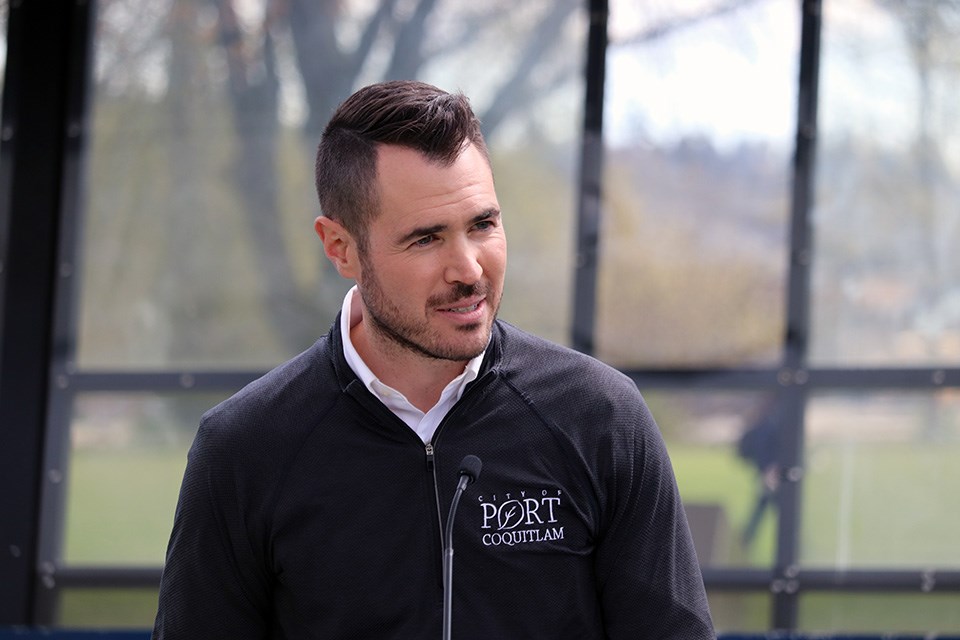Drug use and possession will no longer be allowed within 15 metres of playgrounds, waterparks and skate parks, after Health Canada expanded exemptions to B.C.’s decriminalization pilot law, in response to concerns from mayors and police chiefs.
Before today anyone could possess and use up to 2.5 grams of cocaine, heroin, crack, MDMA and fentanyl in public, except on school grounds, at child-care facilities and in airports — as part of a three-year pilot project in B.C. that started Jan. 31 to help curb rising overdose deaths. The new children’s areas are added to this list of places where police may still enforce the Controlled Drugs and Substances Act.
But one of the most vocal advocates of such amendments, Port Coquitlam Mayor Brad West, says the amendments remain limited.
“This doesn’t go as far as our bylaw goes. Our bylaw protects all parks. The same rationale that says you should not be using fentanyl and crack in a playground applies to a soccer field, where kids are playing,” said West, whose municipal bylaws changed last spring to cover a legal gap posed by decriminalization.
“My view is they should have taken our bylaw and applied it writ large to the province,” said West.
Jennifer Whiteside, B.C.'s Minister of Mental Health and Addictions, said Thursday the amendments were requested after hearing from mayors that the decriminalization pilot did not include enough exemptions.
Glacier Media sought clarification from the ministry as to the legalities of possessing drugs on sports fields. (The ministry later confirmed that decriminalization remains on sports fields, unless those fields are on school grounds: "The Province will continue to work closely with the federal government to evaluate and monitor the exemption, and we will make necessary adjustments along the way to ensure the desired outcomes of decriminalization are met," stated the ministry in its response.)
Vancouver criminal lawyer Sarah Leamon told Glacier Media the amendment highlights the shortcomings of the pilot project.
“It’s interesting this wasn’t in place before. It seems, where any kid is expected to be, an exemption should be a no-brainer,” said Leamon.
The amended exemptions continue to raise questions around enforcement, she said.
“If there is an exemption, it doesn’t mean anything unless we have meaningful enforcement.”
Furthermore, she said, “I start to wonder if someone is transiting between locations and finds themselves within 15 metres of a play area,” Leamon pondered.
Leamon said it will be important for messaging to get to drug users and the broader public, although she acknowledges questions remain about areas not specifically listed on the exemption list but still frequented by children, such as sports fields.
Another ongoing gap identified by West is the lack of action on treatment. West said he is an advocate of more tax dollars directed toward treatment as well as mandatory treatment in some instances.
“We now have a system in place where people are going to not be dealt with by the criminal justice system. That’s great, but where’s the treatment?
“I will continue to believe we will not make a meaningful difference in what we are seeing until we have some form of mandatory treatment,” said West.
“We have people out there but they aren’t existing; they’re contorted up like pretzels. They are in no position to make a decision to get treatment and get better. Leaving them on the street, some call that compassion; I don’t think that’s compassion at all.”
West suggested an ounce of prevention is worth a pound of cure, so to speak. He is in favour of spending what is needed to expand treatment programs; this, he says, will offset the costs to the health-care system, the legal system and free up police, who he wants to see focus more efforts on money laundering and drug trafficking.
Within the ministry’s statement was a supportive quote from Fiona Wilson, vice-president of the BC Association of Chiefs of Police.
Wilson told Glacier Media the association advocated for these changes, although police chiefs remain in favour of decriminalization, “from an overarching perspective of keeping people out of jail by simple virtue of their drug use.”
Wilson said the details become a bit tricky in terms of determining where exactly someone can use drugs in a public space.
“We don’t want people pushed indoors and using alone,” said Wilson.
“We are on track to eclipse the province’s (annual) overdose deaths and that’s a tragedy,” said Wilson, who echoed West’s call for treatment on demand.
In B.C. this year, 1,455 people have died from an overdose from an illegal and unregulated drug. This is a rate of 46.2 people per 100,000 residents. Last year was a record rate of 44.8, whereas in 2013 the rate was 7.2. The massive uptick is largely attributed to drug toxicity, according to the BC Coroners Service.
Opioid toxicity deaths are mostly in men (77 per cent) and largely equal across all age groups. A quarter of deaths occur in Vancouver and 75 per cent occur inside a residence; whereas about one in five occur outside. Fentanyl is detected in 83 per cent of all victims.
B.C. is the worst jurisdiction in Canada for such deaths. In 2022, the rate across the country was 18.8 people per 1000,000 residents, although Health Canada notes this figure is likely lower due to undercounting of some overdose types, such as with stimulants.
In America, the rate was 32.5 people per 100,000 residents in 2021, according to the U.S. Centre for Disease Control.
Mayors such as West and Delta Mayor George Harvie have become the most recent advocates of a dedicated port police, which Vancouver lacks unlike most Western ports. The largest source of fentanyl is believed to be from China, according to the U.S. Drug Enforcement Agency.
Editor's note: This story was updated Sep. 15 with new information.




